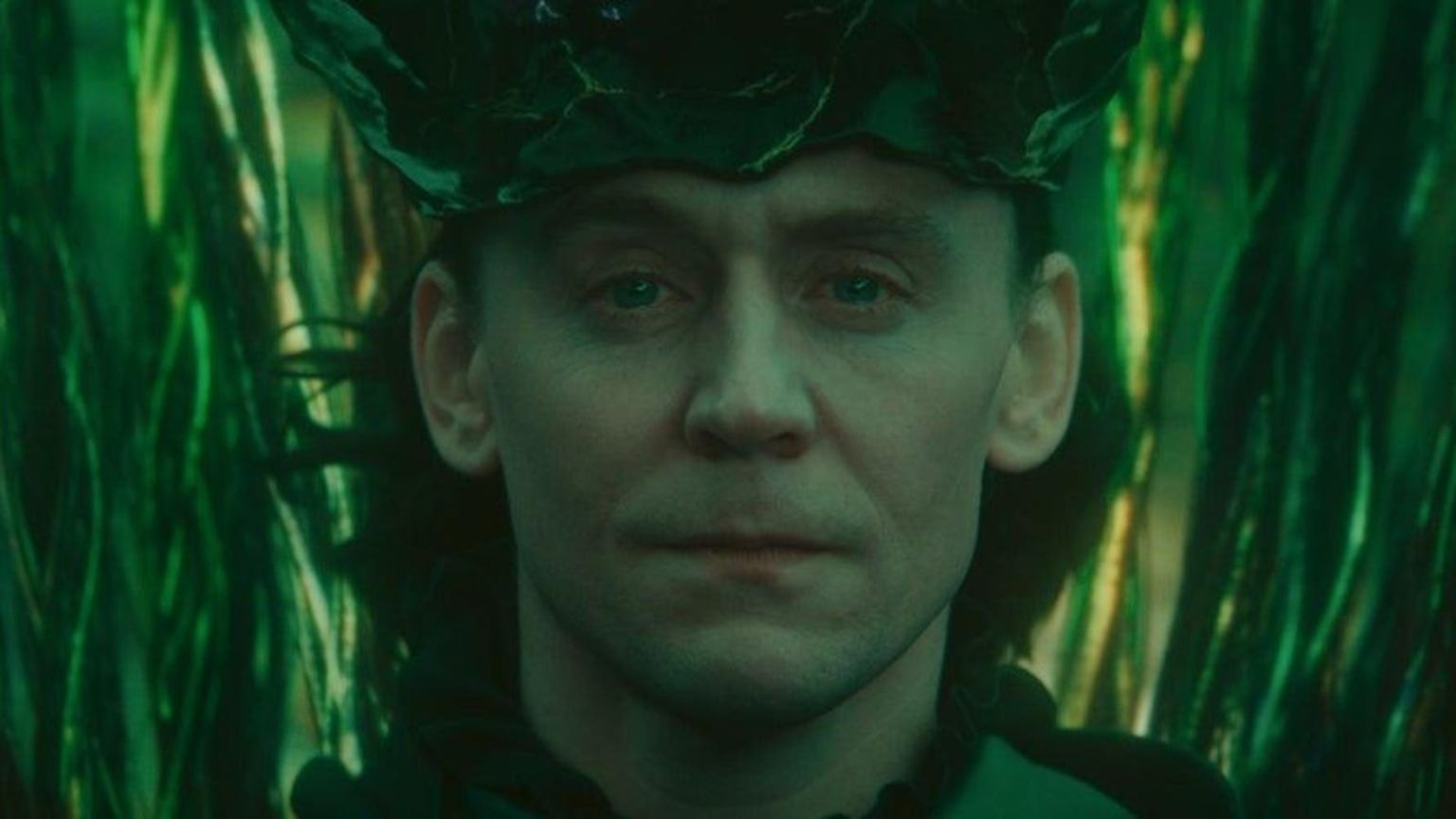I was not expecting to be so profoundly moved by Loki. Even by the time I reached the Season 2 finale, it felt like something that would be played for laughs rather than big feels. Spoilers ahead.
The first half of the finale, Glorious Purpose, is genuinely funny, plopping our titular character into a sort of time-traveling Groundhog Day. Indeed, how could you not think of Bill Murray’s Phil when the title card “Centuries Later” appears and now Loki (Tom Hiddleston) is shockingly well-versed in physics and quantum mechanics, having studied with Ouroboros (Ke Huy Quan) and learned everything he knows in order to somehow fix the Loom and prevent the destruction of the TVA.
It’s all for naught, of course. The Loom, we discover, is just a failsafe designed to protect the Sacred Timeline. He Who Remains (Jonathan Majors) planned the whole thing, or at least guided events. Loki’s confrontation with Kang brings him back to the climax of Season 1, but this time he tries—countless, countless times—to stop Sylvie (Sophia Di Martino) from killing He Who Remains.
He faces such a moral conflict over what to do—kill Sylvie and protect the timeline, or let her kill He Who Remains and let everything end—that he even visits his old friend Mobius (Owen Wilson) to find answers in a dying timeline. But the story Mobius tells him, of his inability to purge a boy who would end up being responsible for the death of thousands, and his partner Renslayer’s (Gugu Mbatha-Raw) swift action on his behalf, only muddies the waters.
He visits Sylvie instead, at the point in time where all the timelines are ribboning off into nothingness in some of the most dreamlike, trippy CGI Marvel has offered up to-date. She tells him that it’s not enough to save the Sacred Timeline, with all of its pain and injustice and suffering. And this sparks a revelation in our God of Mischief.
He goes back to the Loom, but this time instead of sending poor stuttering Victor Timely out, he goes himself. “I know what kind of God I need to be,” he tells Sylvie and Mobius through the glass. “For you. For all of us.”
Then he walks out into the temporal storm. The wind tears his clothes to shreds and in their place, Loki’s dark green cloak appears. Horns grow upon his brow, like a crown. He destroys the loom, and all the timelines break off into space, their light extinguished. Reaching out, he grabs one and infuses it with his magic, then another. He steps forward, walking up an invisible staircase, gathering ropes of time as he ascends toward a dais, upon which we see a throne.
He sits upon the throne, roping more and more timelines and then casts all his strength and power into them. We see them light up, green, as they form the Tree Of Life, Yggdrasil, though at its top the green is riddled with purple, perhaps indicating the multiversal war between the Kangs.
Later, we find Mobius standing on the street where one of his variants lives. The personal watercraft salesman and his boys. Sylvie shows up and they talk amiably. She asks him what he’s going to do and he says he thinks he’ll wait here for a bit longer. “Pass the time,” he says, bittersweetly.
As he stares longingly at a life he can’t have, we fade and cut back to Loki, sitting on his throne. His face is strained but there’s a look of pride and contentment there as well. He has fulfilled his glorious purpose. His destiny. He has become Yggdrasil, the keeper of life and time over an infinite cosmology. It’s a beautiful, surprisingly moving moment (following Mobius’s own poignant final scene). It’s also a tremendous piece of storytelling that ties back to Captain America: The First Avenger and brings Loki’s story full circle in a way that is, without a doubt, one of the most impressive feats the MCU has achieved.
For the first time in a long time, I’m actually excited about the Marvel Cinematic Universe again, if only because they’ve proven that they haven’t lost that magical touch quite yet, even if overall the project has faltered and stumbled more than it’s succeeded in recent years, especially when it comes to the Disney+ shows.
Of course, the trick is to follow where Loki is leading, and to craft the future of the MCU with the same care and attention to detail. Because the attention to detail here truly is remarkable.
In the first Captain America, Red Skull finds the Tesseract hidden behind a mural of Yggdrasil. Indeed, he finds it by pressing the eye of a snake. That Loki should become the Tree of the World, guardian of wisdom and fate, all these movies and shows later is really quite remarkable (and subtle, for most viewers will likely not remember).
It is perhaps also no coincidence that the Time Stone is green.
Side-note:
I only watched two episodes of Loki when it first aired. I was feeling quite burned out on Marvel after Falcon and the Winter Soldier and just never got back to the show. I only just binged both seasons over the last week or so, and watched the finale last night.
This means that I wrote my anti-multiverse piece prior to finishing Loki, and that adds a curious wrinkle to my thesis that the multiverse is killing the superhero genre.
For one thing, Loki handled this mult-timeline stuff very, very well, and sets the stage for a compelling resolution to the multiverse (hopefully) with the Kang wars (though another wrinkle there, of course, is Jonathan Majors).
Whatever the case, while I’m certainly tired of the multiverse in general, when it’s handled as artfully and with as much care and craft as Loki somehow managed, I find myself enjoying it a great deal. But the true magic of Loki’s end game, was making the stakes so personal. Loki wanted to save his friends. He worked tirelessly, for centuries, to save the people he cared about. In the end, he made a sacrifice—and fulfilled his destiny—to save the ones he loved. Sure, it was all about saving everything from total destruction, but that receded into the background as Loki fought to save something far more intimate and personal, and that is how you create a superhero story we care about.
As another Disney hero once put it, this is the way.
This is the way forward for the MCU. What truly matters is telling great stories with characters we care deeply about. These can be TVA analysts like Mobius, or roguish demigods like Loki, or even sympathetic villains like Renslayer. Fundamentally, we need to care about them and their relationships with one another more than we care about The Fate Of The Universe. This is why the latest Thor movie failed with audiences. It made Thor a punchline in a story where the stakes were big but boring. It relegated his story and the story of his loved ones to one-liners, and while it was still enjoyable it felt hollow in the end. At this point, Loki has been given a far richer, far deeper story, and one that will resonate far more profoundly with fans.
This is the way. I have spoken.
Read the full article here





